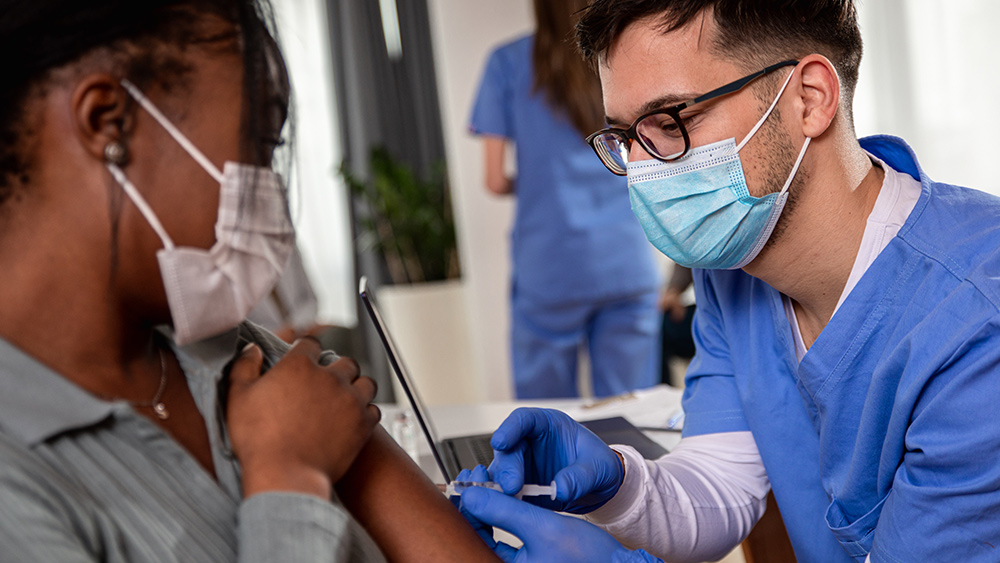Animal study findings suggest targeted ultrasound can be an effective treatment for Type 2 diabetes
01/07/2020 / By Grace Olson

The next step in diabetes treatment could be sound, according to researchers from The George Washington University. In their study, they identified ultrasound waves as a potential tool for treating this chronic disease. The team presented their findings at a conference hosted by the Acoustical Society of America in Kentucky.
A non-invasive way to treat diabetes?
Ultrasound, the targeted emission of high-frequency sound waves, is often used in imaging. As the sound waves hit tissue, the “echoes” (reflected sounds) produce an image. In particular, physicians use ultrasounds to probe a person without resorting to surgery or radiation.
Many people associate ultrasound with prenatal care, but it also has its uses in cardiology and urology. For the former, it is used to measure blood flow in the heart and detect dysfunction. Urologists, on the other hand, rely on ultrasound to detect kidney stones and certain forms of cancer. More recent studies, however, are looking at the possibility of using ultrasound beyond imaging. Some studies have shown that it can be used to treat Parkinson’s disease and even Type 2 diabetes.
The hallmark characteristics of Type 2 diabetes are the lack of insulin and the onset of insulin resistance. Insulin is a hormone produced in the pancreas by specialized cells known as beta cells. The body uses it to regulate blood sugar levels. At the onset of diabetes, elevated levels of blood sugar can overwork beta cells. When this happens, insulin builds up inside them, which may cause them to die. If more beta cells die, the condition further develops into diabetes. While there are medications that can help increase insulin levels, they can become ineffective over time. (Related: Obesity-induced diabetes in the U.K. behind more than 160 amputations per WEEK; most die within 5 years.)
While earlier studies noted that ultrasound can stimulate beta cells to release more insulin, these were all conducted in vitro. In the current study, the team looked at whether this could apply to live organisms. Researchers divided mice into two groups: One was given a sham treatment (control), while the other group had a five-minute ultrasound treatment. Researchers took blood samples before and after the treatments.
The findings revealed that mice treated with ultrasound had increased levels of insulin in their blood. They also observed that the ultrasound caused no internal damage after treatment. They noted, however, that the treatment did not cause a drop in glucose levels.
“We expect that our approach, with careful selection of ultrasound parameters, may provide a safe, controlled, and targeted stimulation of insulin release from the pancreatic beta cells,” the team concluded.
Ultrasound can still be risky, especially when abused
However, it’s worth noting that ultrasound treatment carries a risk of side effects, especially for pregnant women. In his article, the Health Ranger Mike Adams reported that ultrasound treatments, aside from being extremely loud, has enough energy to render a man infertile for six months. Given the amount of energy ultrasound waves have, expectant women are advised to use it for necessary medical treatments, and not for recreational purposes. Studies have shown that a fetus exposed to frequent ultrasound scans can suffer from brain abnormalities, or experience impaired development.
“This ‘recreational’ ultrasound is extremely selfish, conceited and may pose a very real danger to the health of the baby,” Adams noted.
DiabetesScienceNews.com has more stories on advancements in treating diabetes.
Sources include:
Submit a correction >>
Tagged Under:
anti-diabetes, blood sugar, Diabetes treatment, disease treatments, goodtech, high-frequency waves, insulin, insulin resistance, longevity, medical technology, pancreas, Parkinson's Disease, Prostate cancer, research, Type 2 Diabetes, ultrasound
This article may contain statements that reflect the opinion of the author



















